#1000Kitchens: Meenu Bist Shares a Holi Special, Bhutwa

At Goya, celebrating home cooks and recipes have always been at the heart of our work. Through our series, #1000Kitchens, we document recipes from kitchens across the country, building a living library of heirloom recipes that have been in the family for 3 generations or more. In this edition, Sanskriti Bist visits her home in Dehradun to learn how to cook bhutwa (goat offal), from her mother, Meenu. The dish is the family’s favourite chakna and a small ode to what Holi used to be, needing hours of saute-ing, until the offal and spices come together to make a delicious dish.
This season’s stories are produced in partnership with the Samagata Foundation—a non-profit that champions meaningful projects.
“You can’t shoot me right now, I haven’t put on kajal or lipstick!” my mother exclaims as she runs in front of the mirror. It is an ordinary June summer morning in Dehradun; it has rained a bit, and the sky is just brightening up again, bringing the humidity, or as we say chipchipahat, along with it. “When I was young, Dehradun wasn’t this hot at all. Usually, in June I would be putting on a sweater and getting ready for Hukkum Uncle and his white horse carriage to come and pick me up from school.” She folds a hanky into her purse and slips into shoes as we step out to the butcher’s.
Meenu Bist, my mother, is a talkative woman. It is hard to photograph her; she is never still, always animatedly sharing every tiny personal detail of her life. There are complaints about the state of her beloved Dehradun: “The roads are just potholes now.” And: “Do you see that tree? You think we can ask them if we can cut down this rubber plant? It would look so nice in the corner of our terrace, na?” She actually has a knife handy.
A lot of people who have met her tell me I am exactly like her but honestly, I am just aspiring to be her.
As we reach the butcher shop, she asks for a kilo of bhutwa, the offal of mutton. I ask her, “Why one kilo? It’s just the three of us at home.” I’m visiting for the week, and my brother lives on another continent.
“Your uncle’s son loves it,” she smiles. “I’ll make it for their family also.” How could I forget, my mother’s love language is sharing food. “You know my nani used to buy eight or nine kilos of bhutwa? It feels so bad buying such a small quantity. You kids don’t know what it’s like living with so many people, the amount of fun you have when you grow up in a large family with all of your cousins.”
When my grandparents got married, they shifted to Delhi. My grandfather worked for the central government and my grandmother had her own tailoring business. Within a year of marriage, they had my mother and they found it difficult, managing a little child when they were both working. So they dropped my mother off for a few months at my great-grandmother’s home in Dehradun. She and her husband loved their great-grandchild so much they refused to send her back, and that’s how my mom came to spend 23 years of her life in Dehradun. Then she got married, travelled around the world, only to return to her favourite town in India.
My great-grandmother, Chandrakala Chauhan, had 12 children; six her own, and six from her husband’s previous marriage. But she raised them all with equal affection. And so my mom grew up in a lovely huge haveli, with acres of litchi trees, cows grazing by the hay, and stretches of plums, chillies and mangoes drying on the terrace to be pickled. She would bring home puppies and kittens every other week, and spend the hours in-between playing cricket with her cousins.
“Bhutwa was only made at Holi.” The butcher has chopped and cleaned the innards, stomach and lungs, and gives them to us in a plastic bag. We take the scenic route back home. “Your great-grandmother was famous for her cooking, everyone from around Dehradun would come to our house to eat bhutwa and dahi vada.” (And of course bhang — I grew up on stories of how much the family would drink, and then spend hours laughing together).
Close to home, mom gathers wood from her neighbour, and lights it with a matchstick under a steel choolah. She cleans the bhutwa, and sets an iron kadhai over the choolah. “Did you know this kadhai is 60 years old? My father got it from Calcutta when he was visiting his sister. It’s the only thing I asked for when the house was taken down.” Great-grandmother's house had been sold two decades ago, after she had passed, and has since been replaced by a Bata store. One litchi tree remains; a small memory of what was once her childhood.
Mom adds garlic and ginger paste in heaps, to hot mustard oil, slowly adding in the bhutwa, salt, turmeric, coriander and red chilli powder. “It is honestly a very simple dish, the hard part is waiting for it to come together. My nani used to start this process at 7 am and ask all my uncles to bhuno it until 11 am, when the guests arrived for Holi. There were so many of them, they used to make schedules among themselves on who would bhuno at what time. It was such a great childhood.” These days my mother sometimes pressure cooks it, when she is pressed for time. But, of course, the taste is never the same.
The two of us go back inside, relieved to be out of the sun. We take turns, sauteing the bhutwa in the kadhai, occasionally adding water if it’s gotten too dry. “Dehradun isn’t the same. I miss those days, I miss the city it used to be,” she wipes the sweat off her forehead with a hanky. Aromas of bhutwa waft through the garden. My dad has poured out a beer; bhutwa is our family’s favourite chakna and a small ode to what Holi used to be back in my mother’s childhood. She places the dish in front of us, “Here you go, it is ready!”
MEENU BIST’S RECIPE FOR BHUTWA
Ingredients
1 kg mutton offal
7–8 tbsp mustard oil
30 g ginger
20 g garlic
1 tbsp red chilli powder
1 tbsp turmeric powder
1 tbsp coriander powder
Salt
Method
Heat mustard oil on medium-high heat until the oil starts smoking.
Add the ginger and garlic paste.
Add offal.
Add red chilli powder, turmeric, coriander powder, salt and a little water to make a thick paste.
If cooking on a chulha, mix for 3–4 hours; otherwise 35–40 minutes in a pressure cooker on low simmer after one whistle on high heat.
Words, photographs by Sanskriti Bist. Artwork by Shivam Choudhary.
Special thanks to our partners.
ALSO ON GOYA
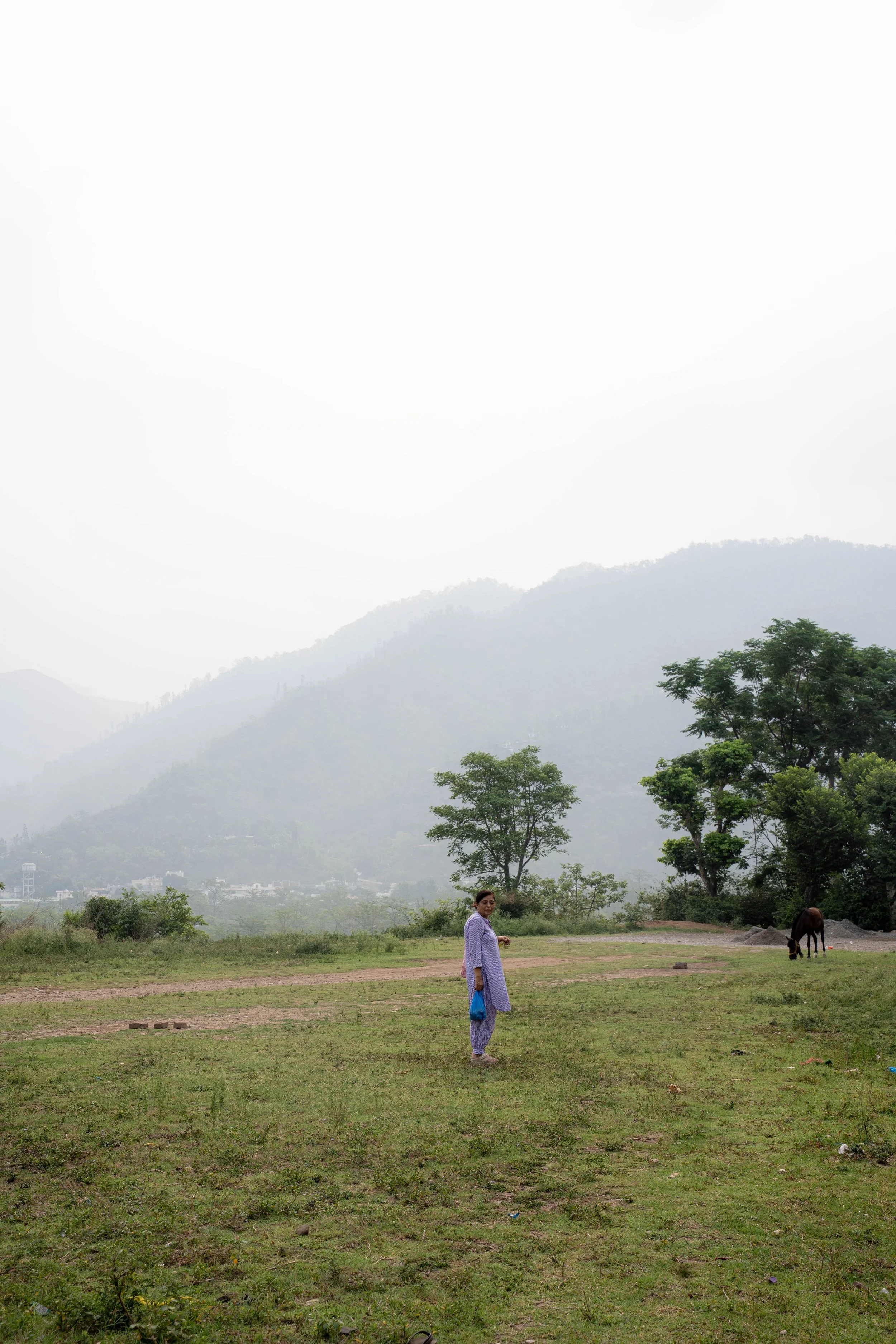
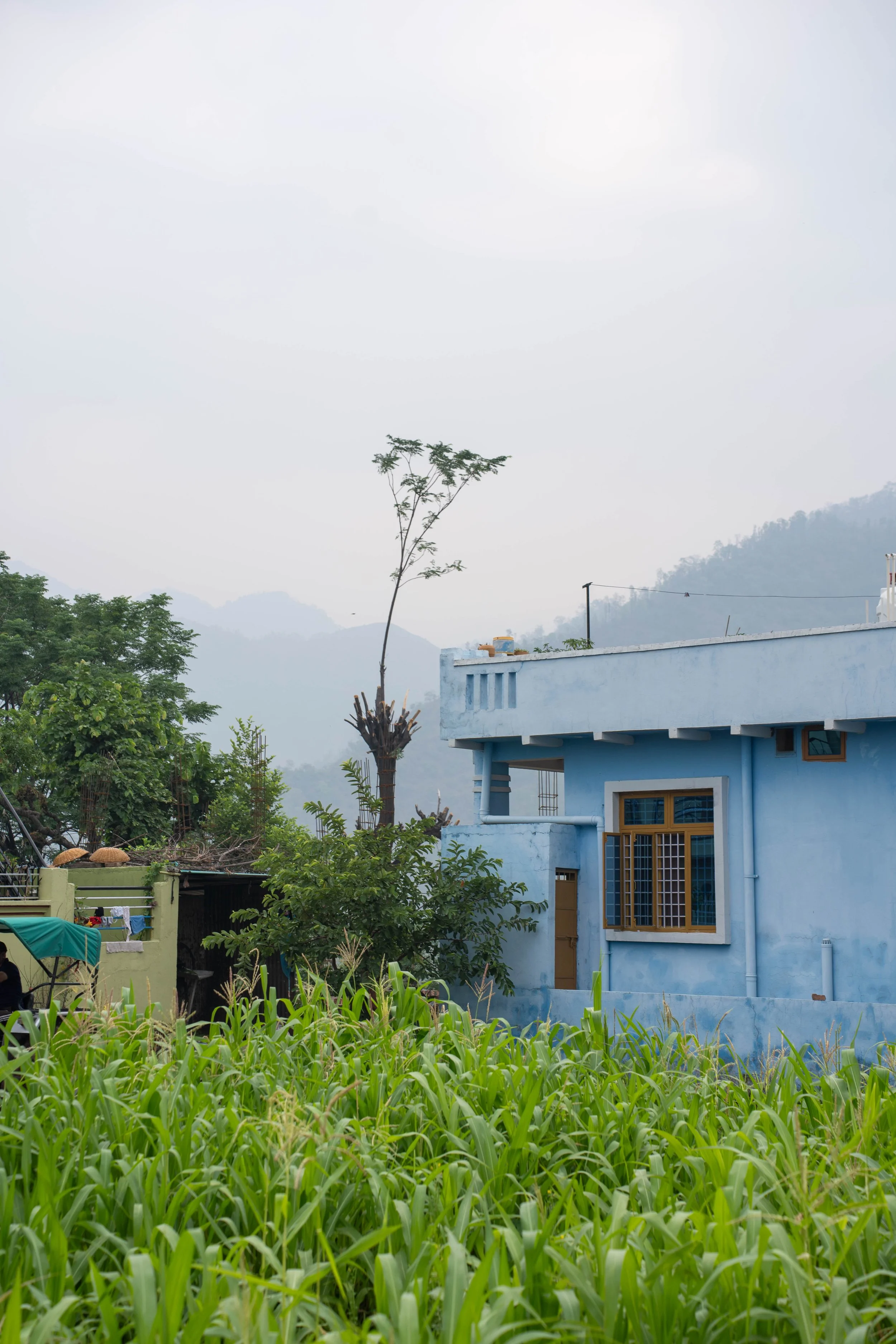
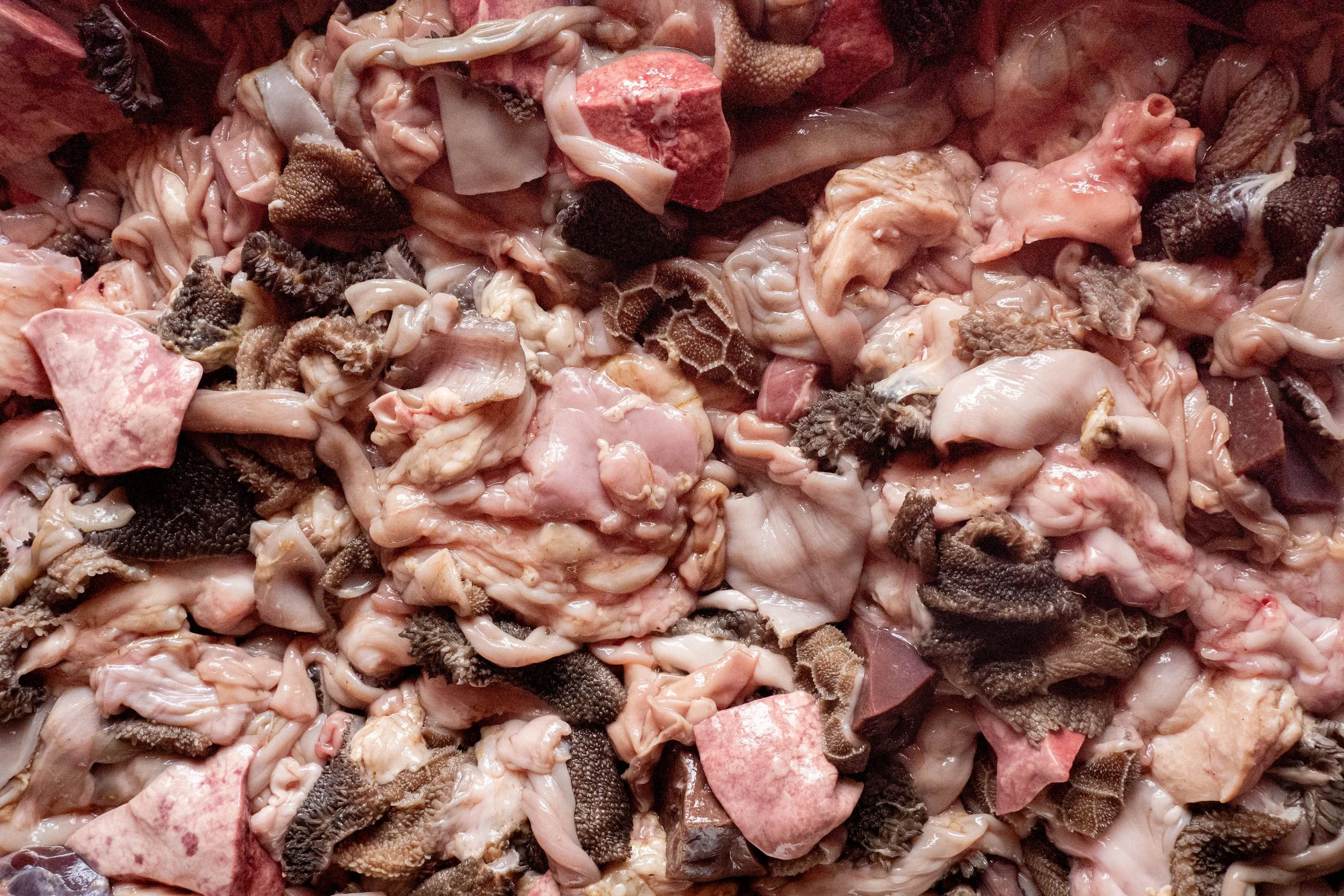
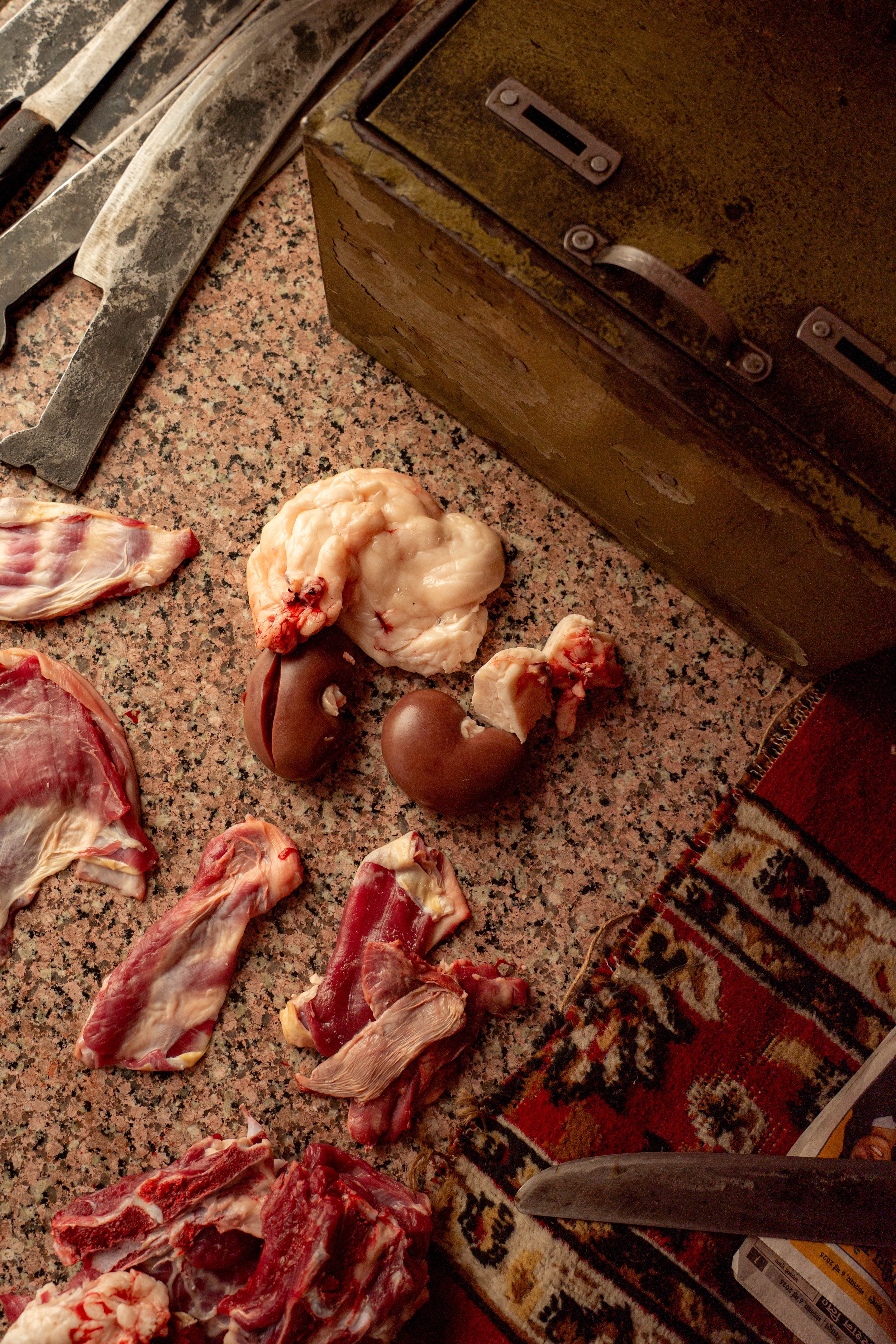
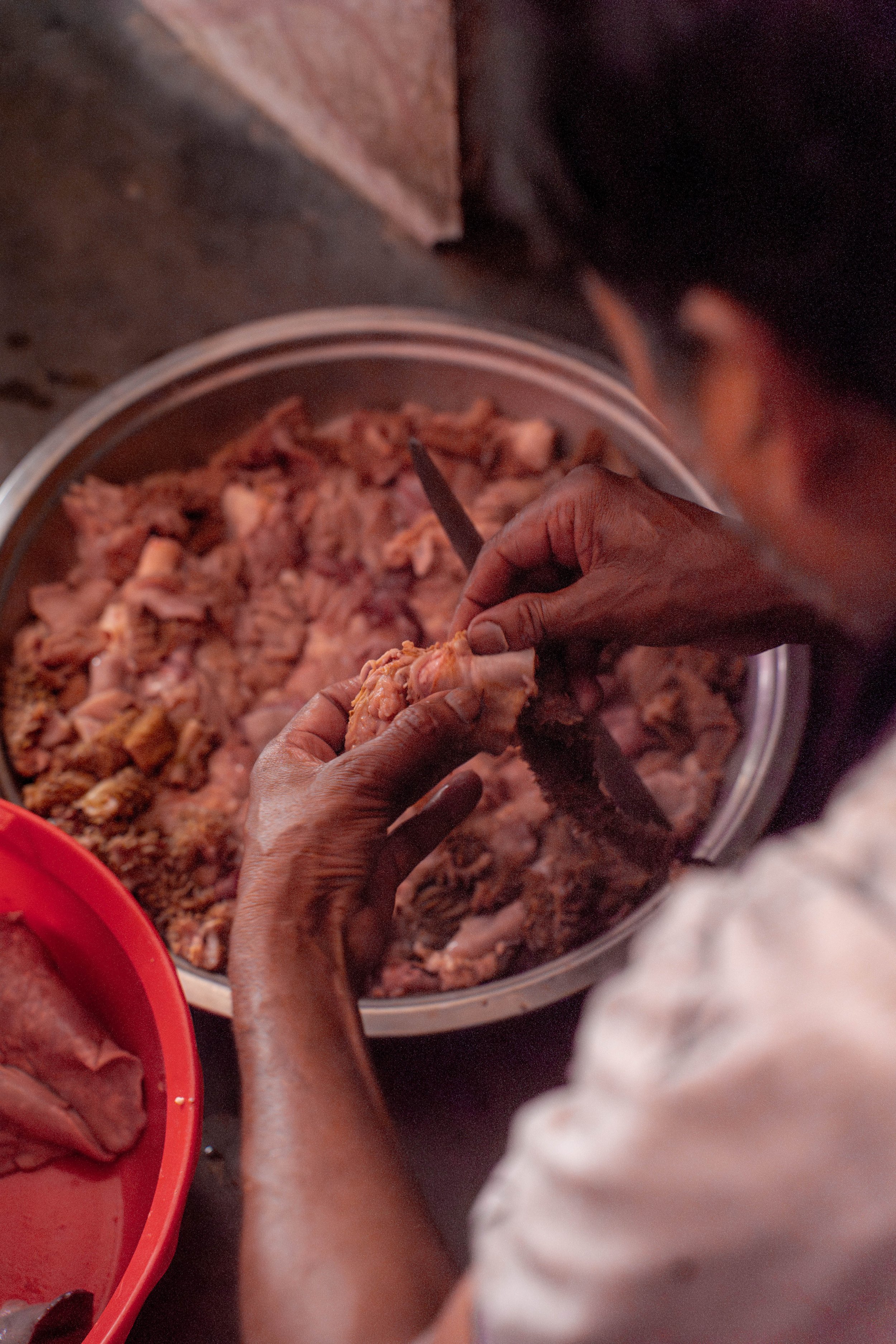
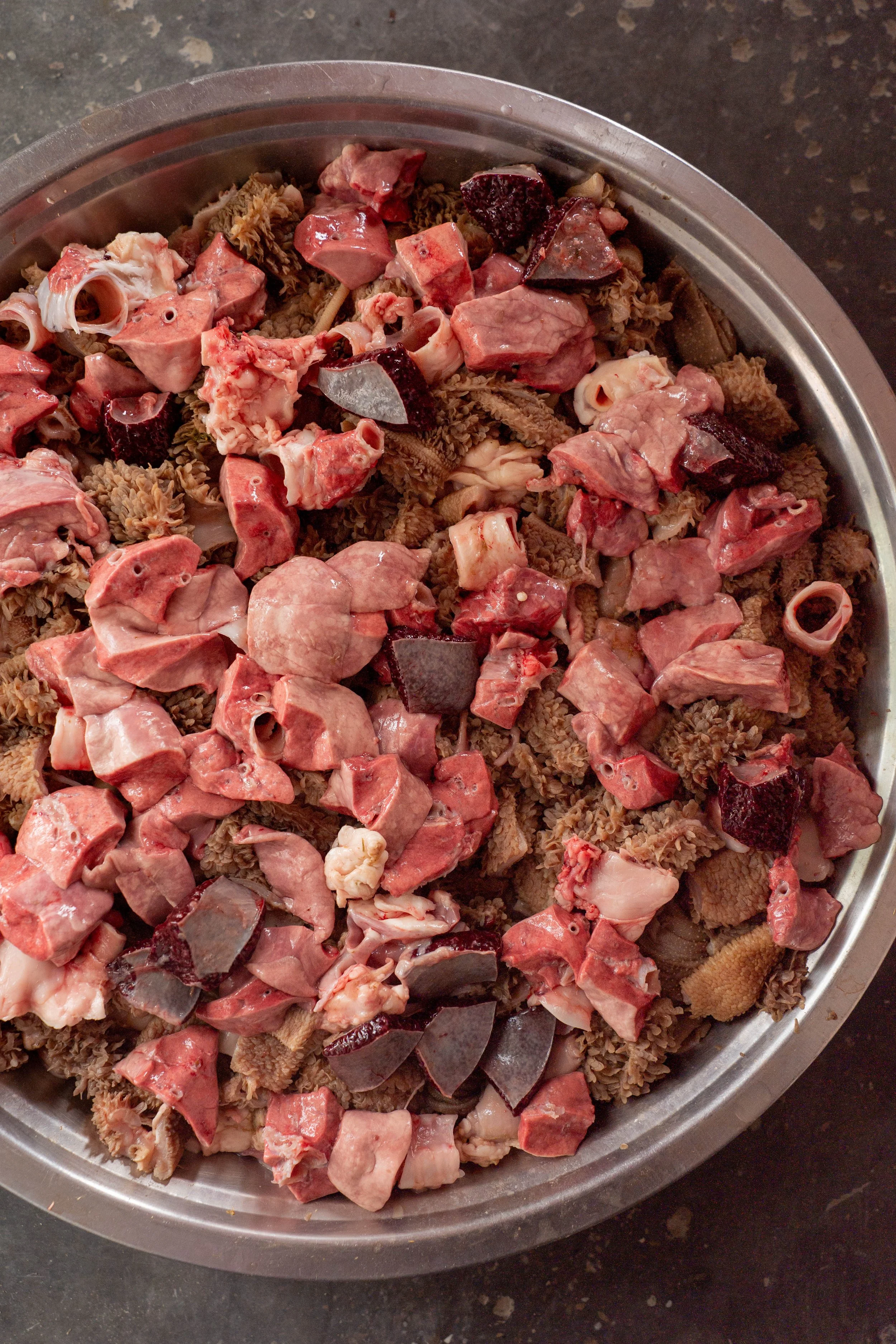
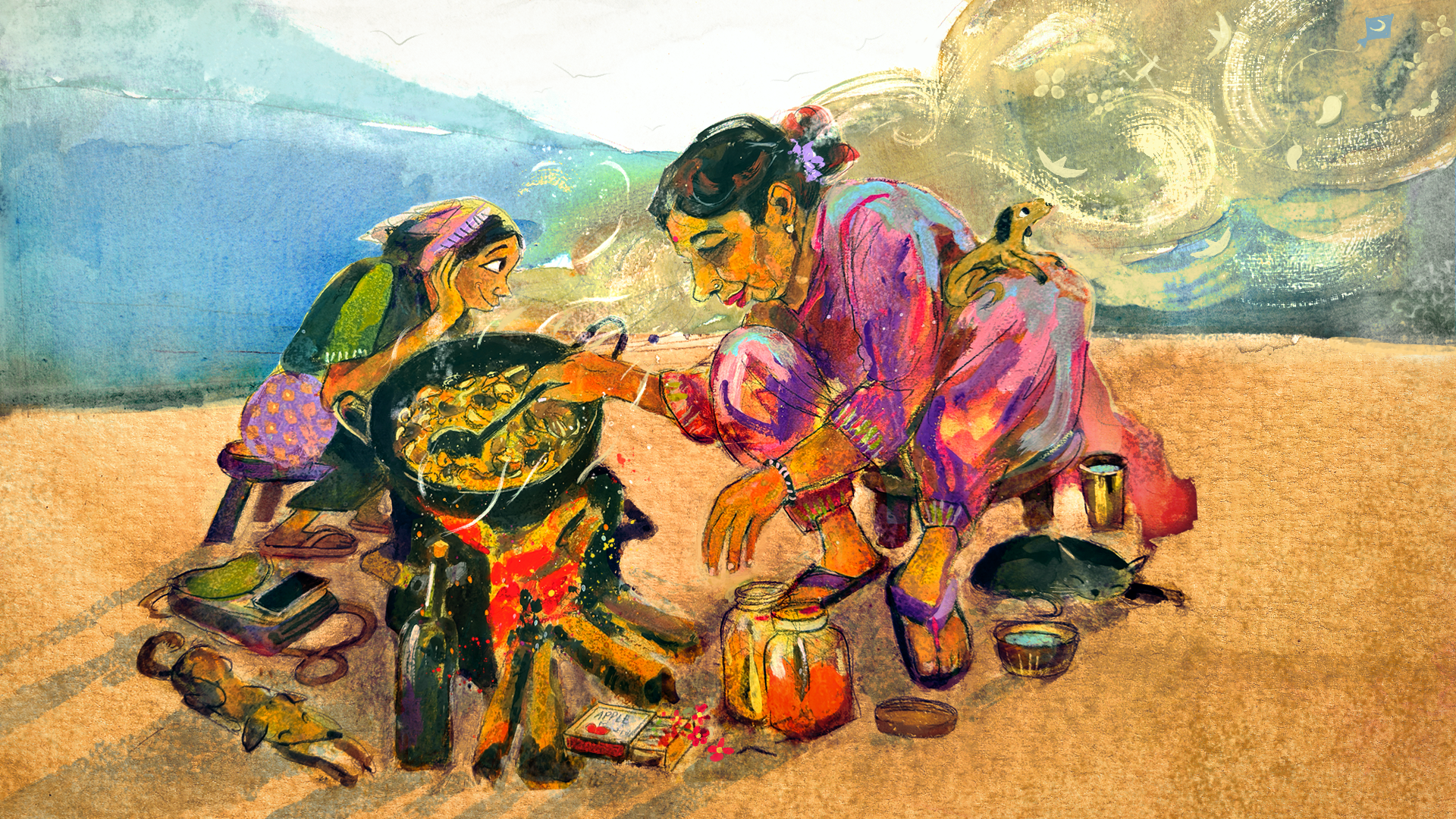

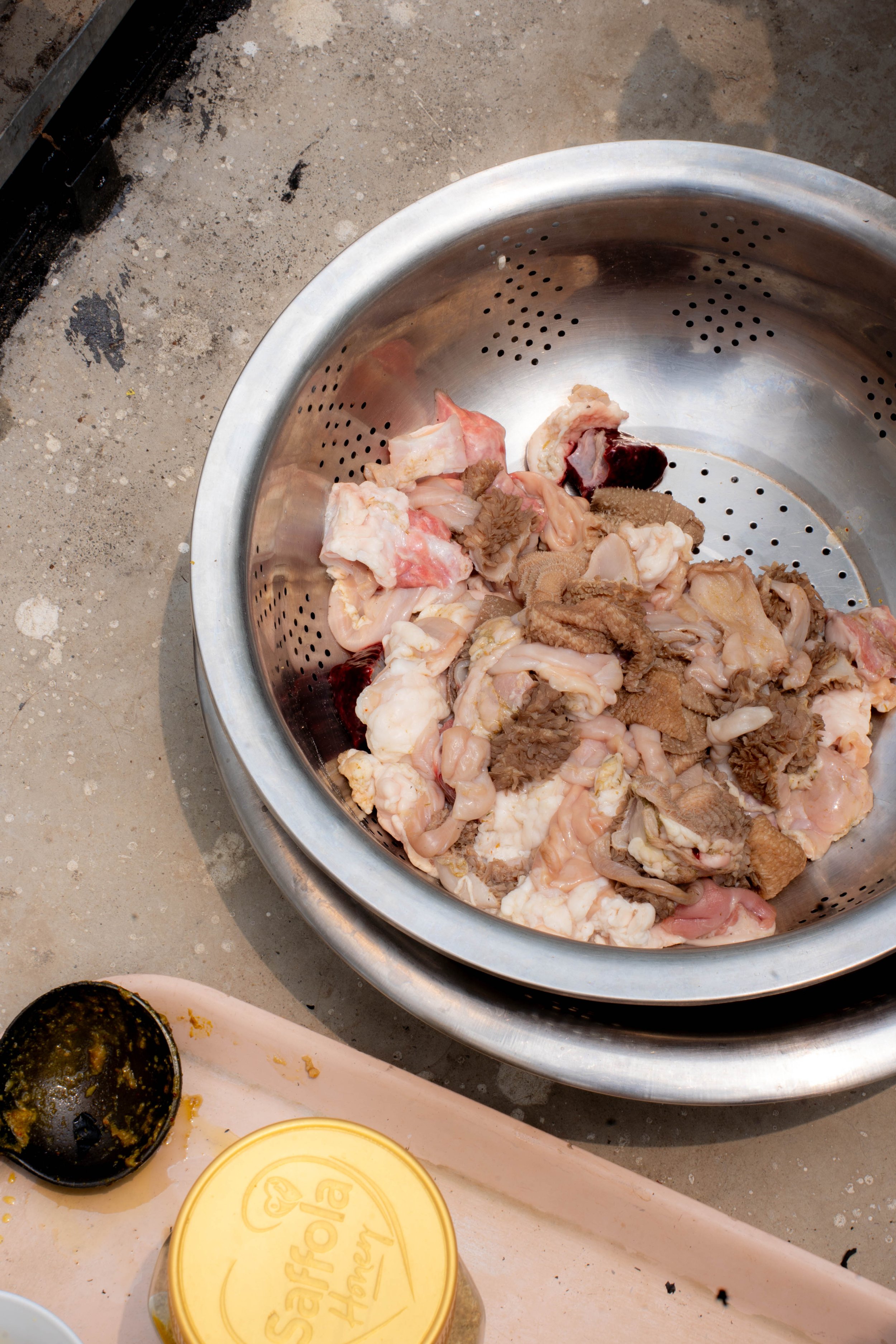
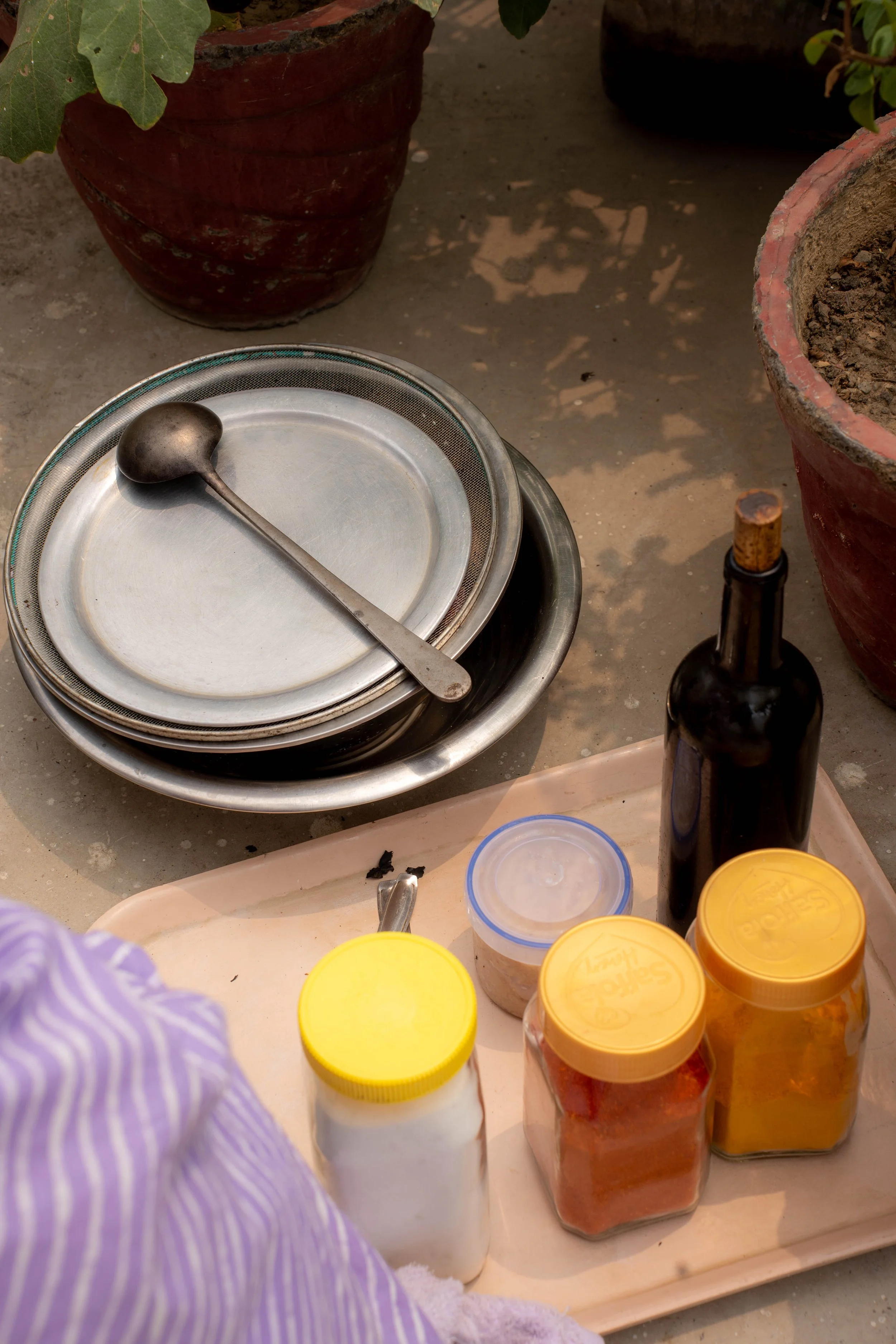
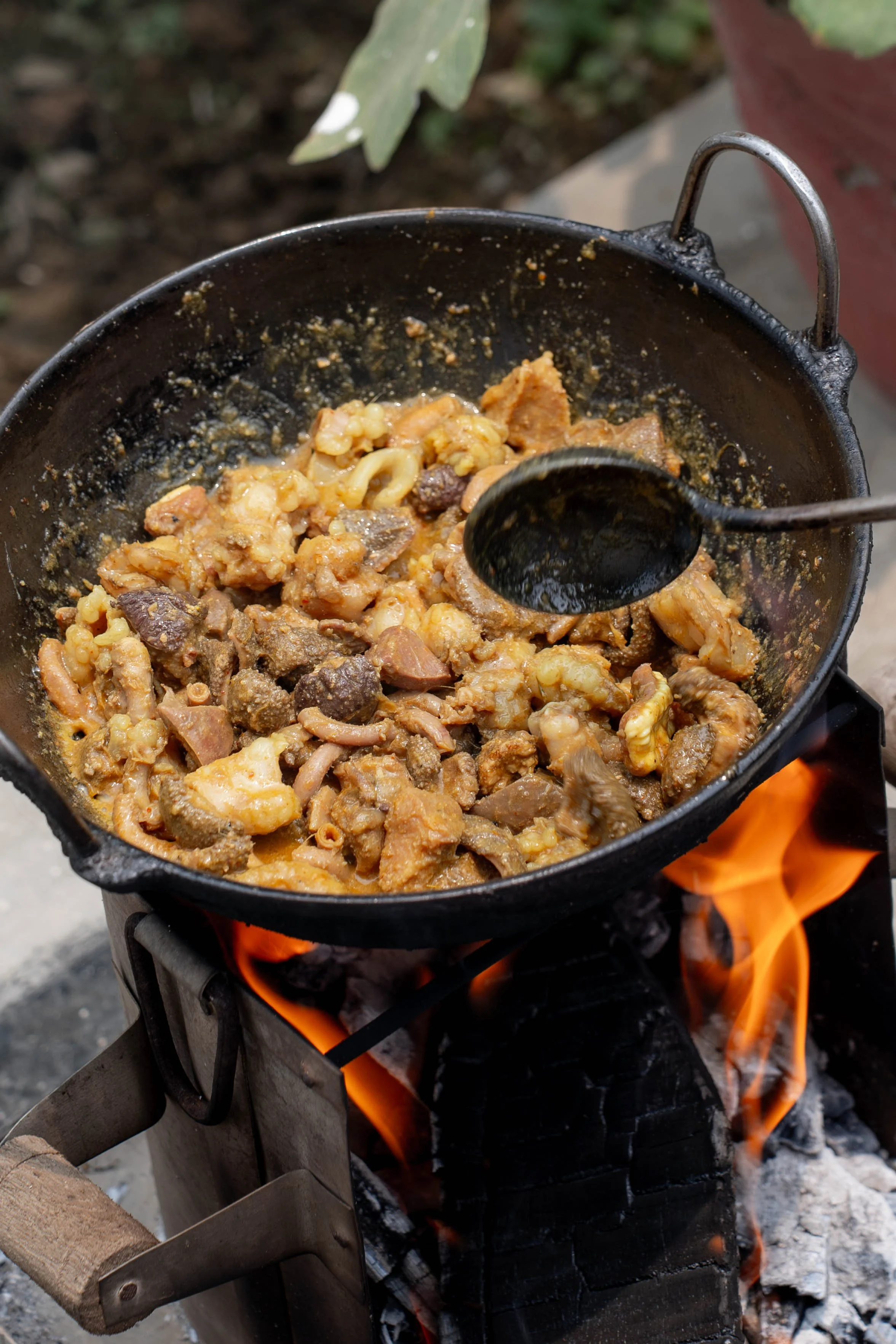
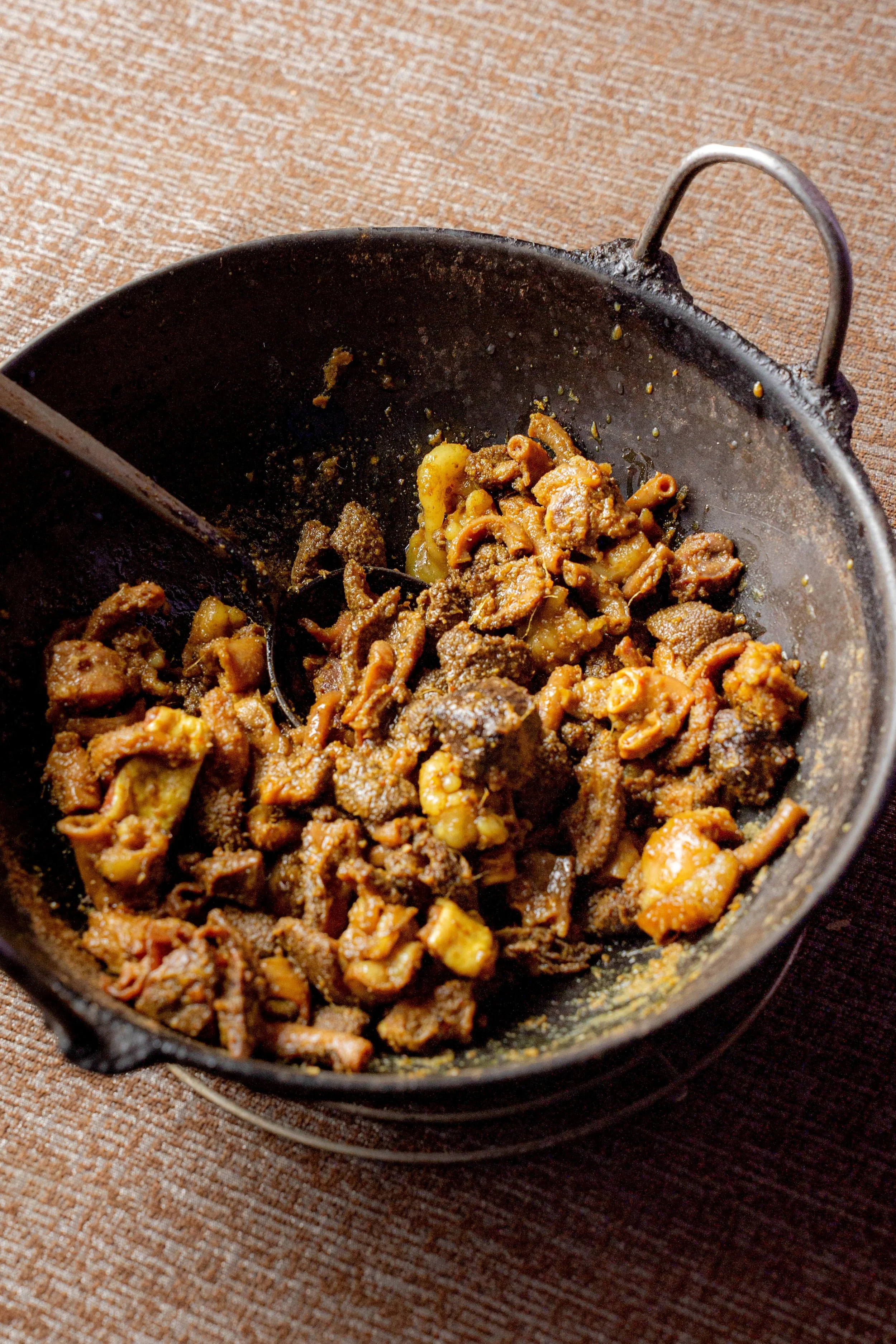

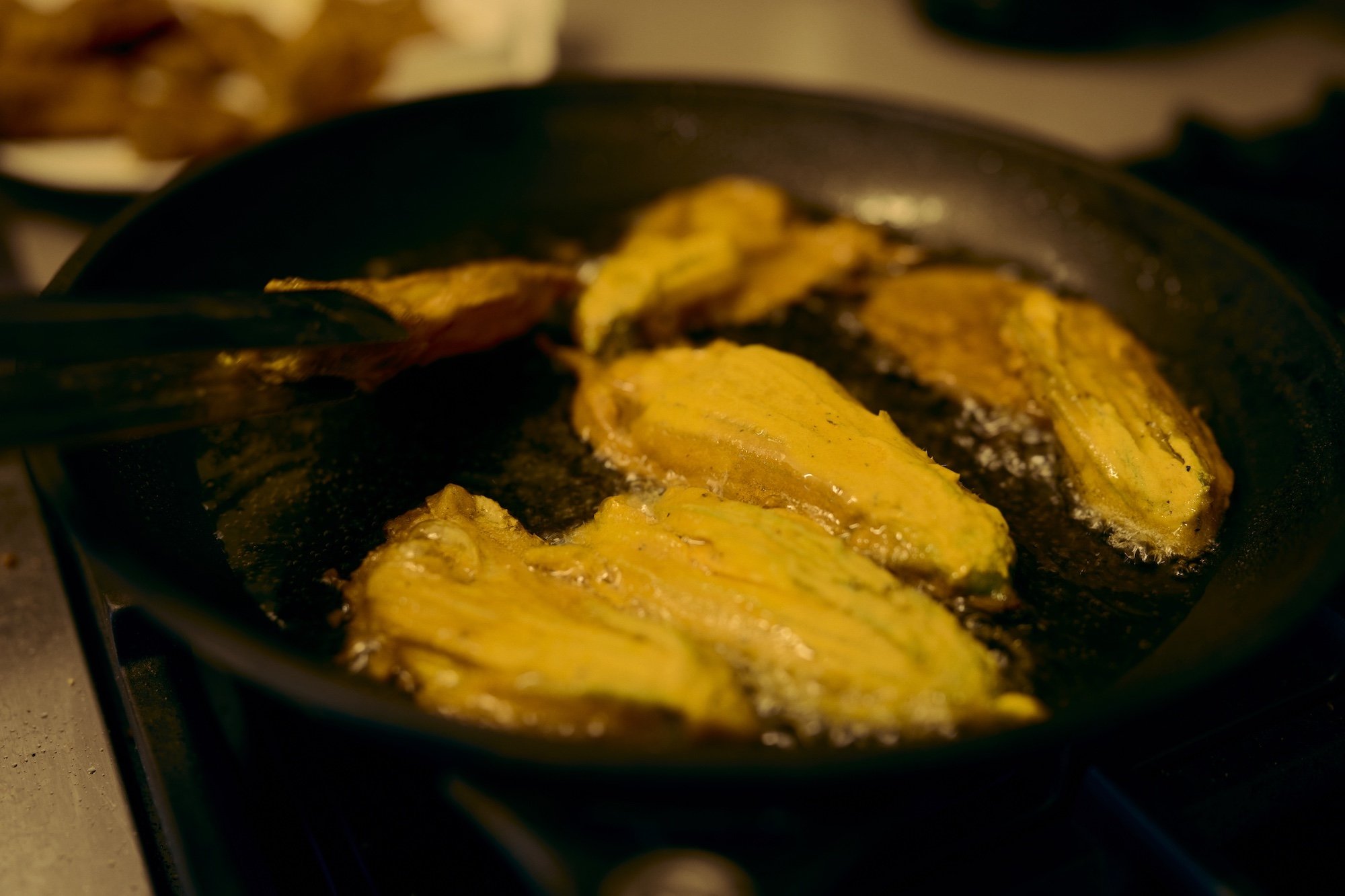
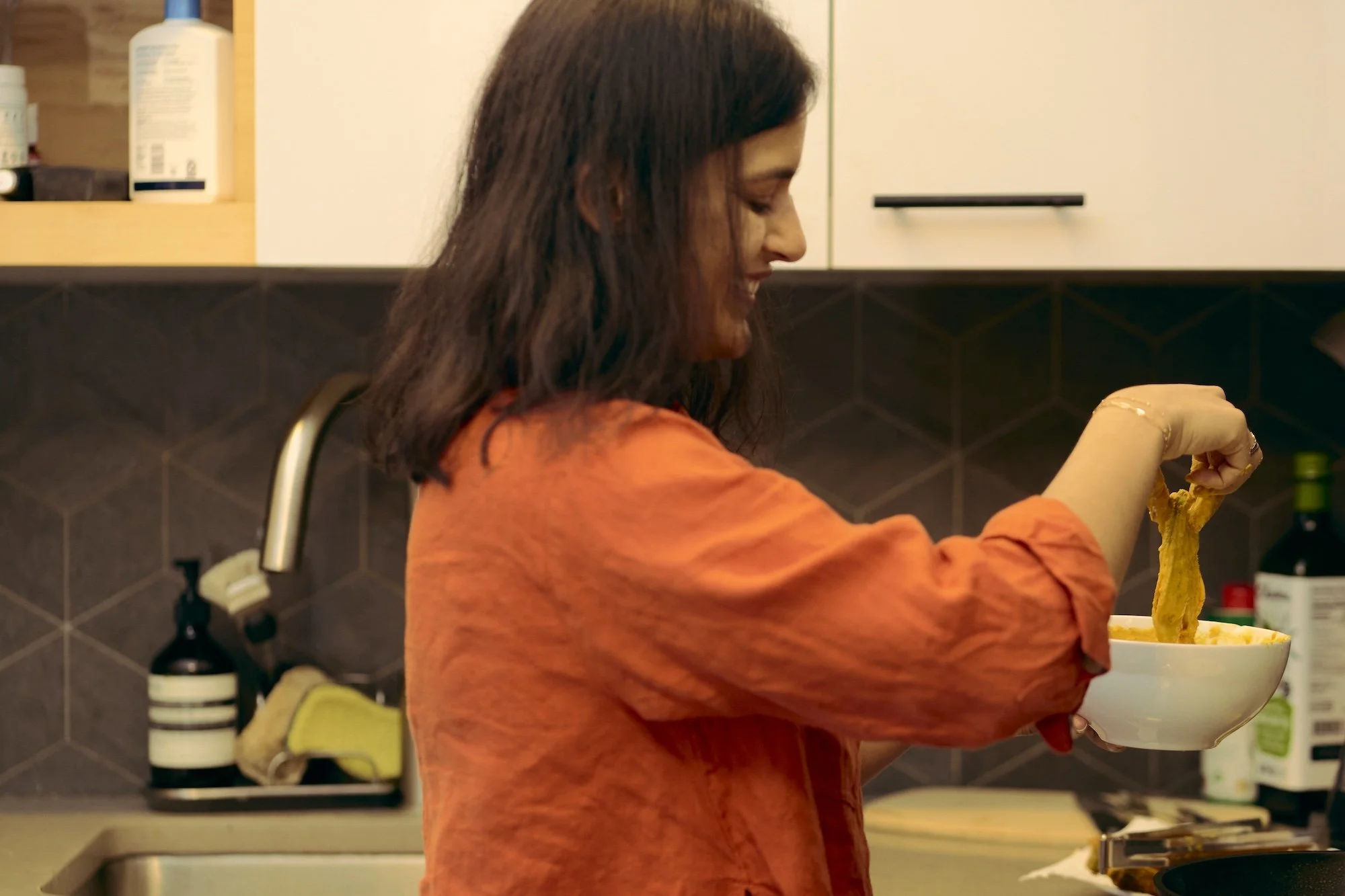
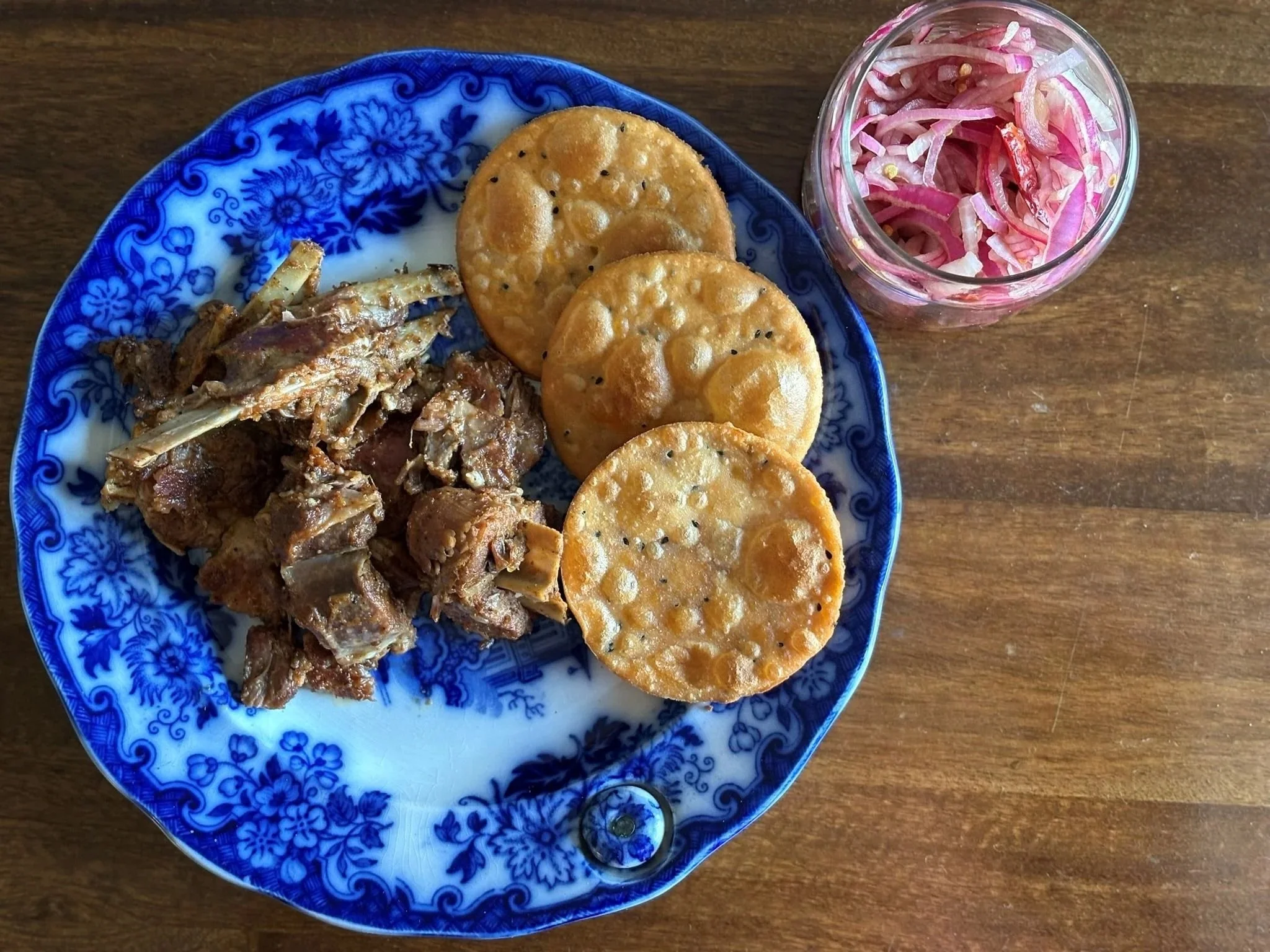
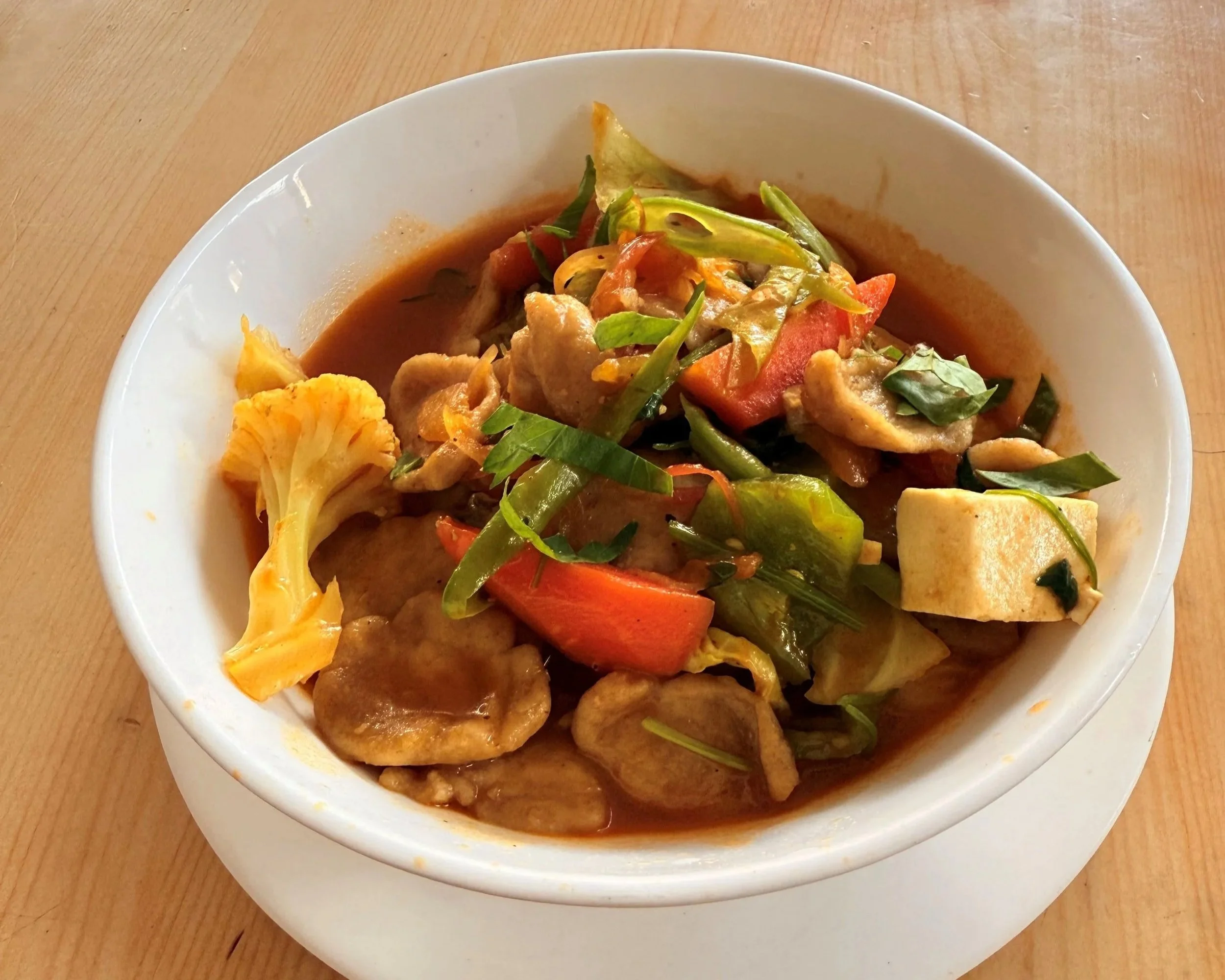
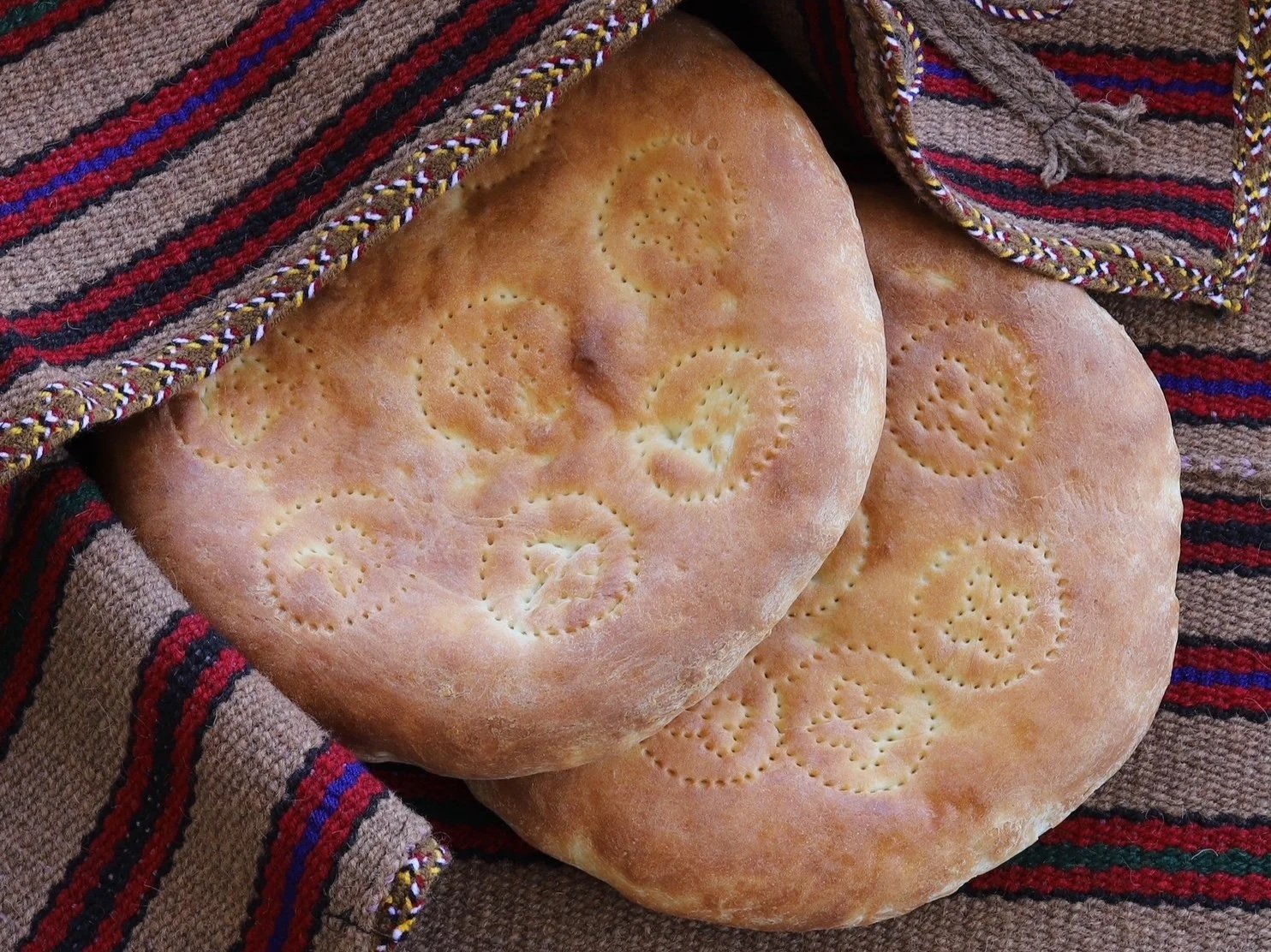
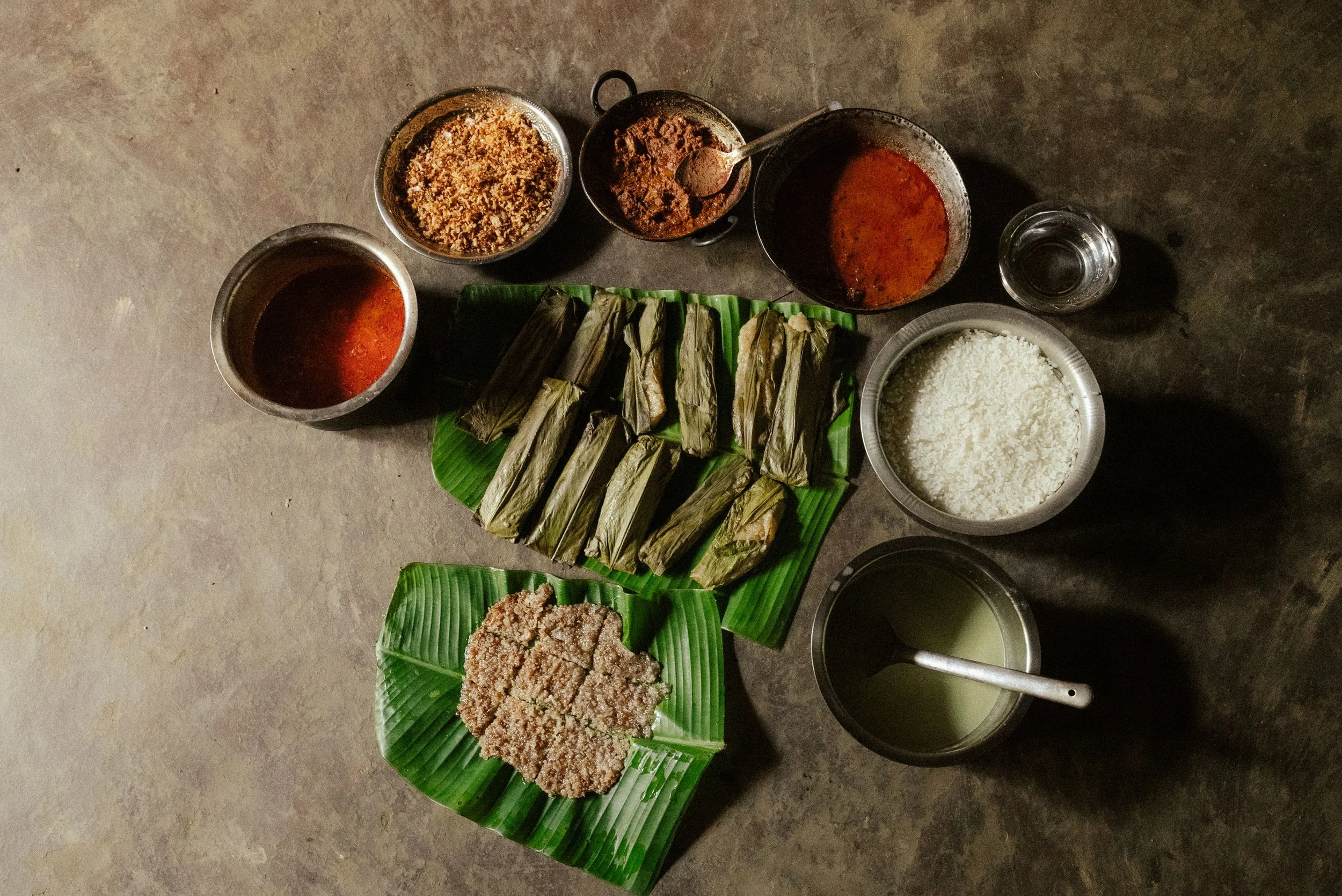
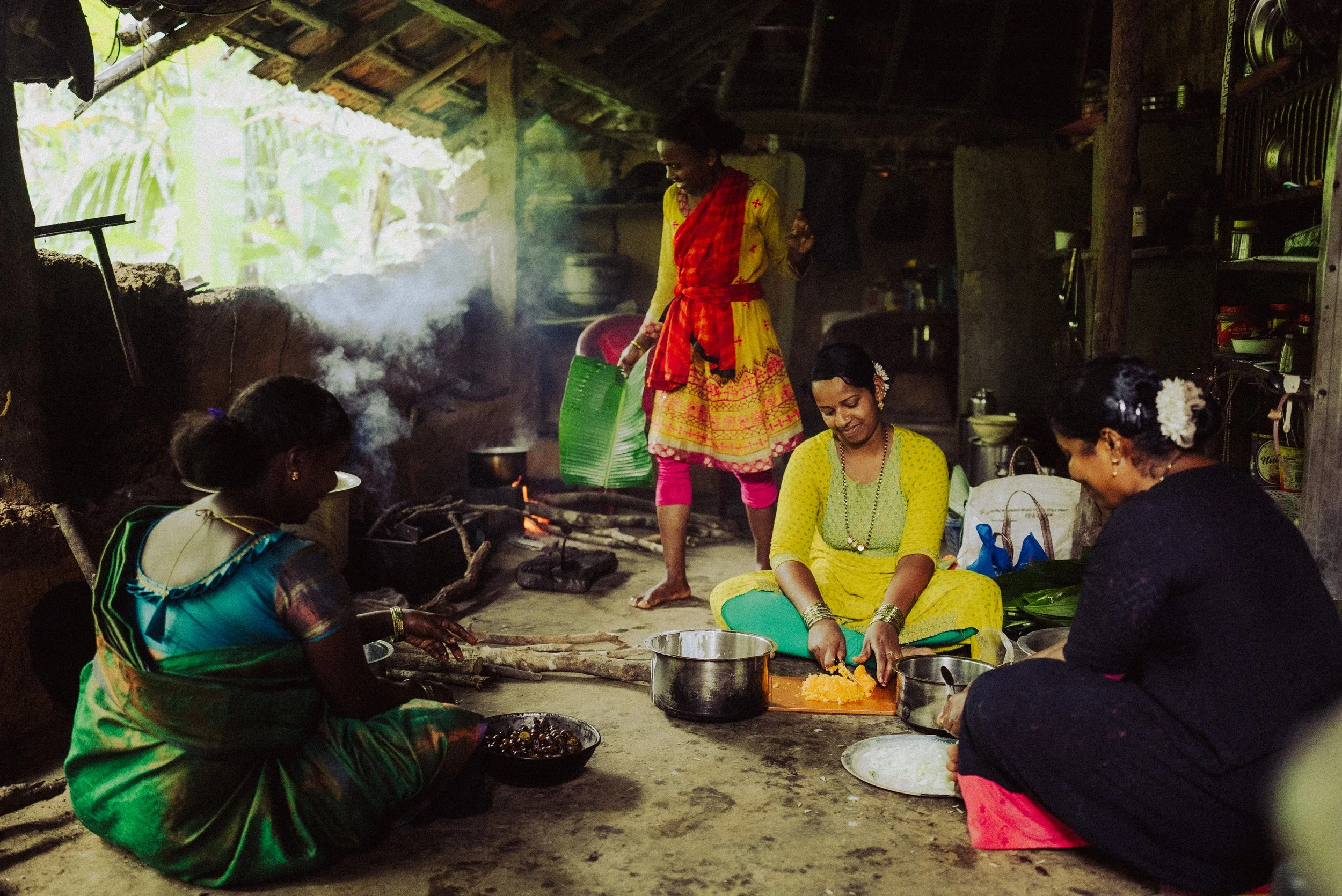
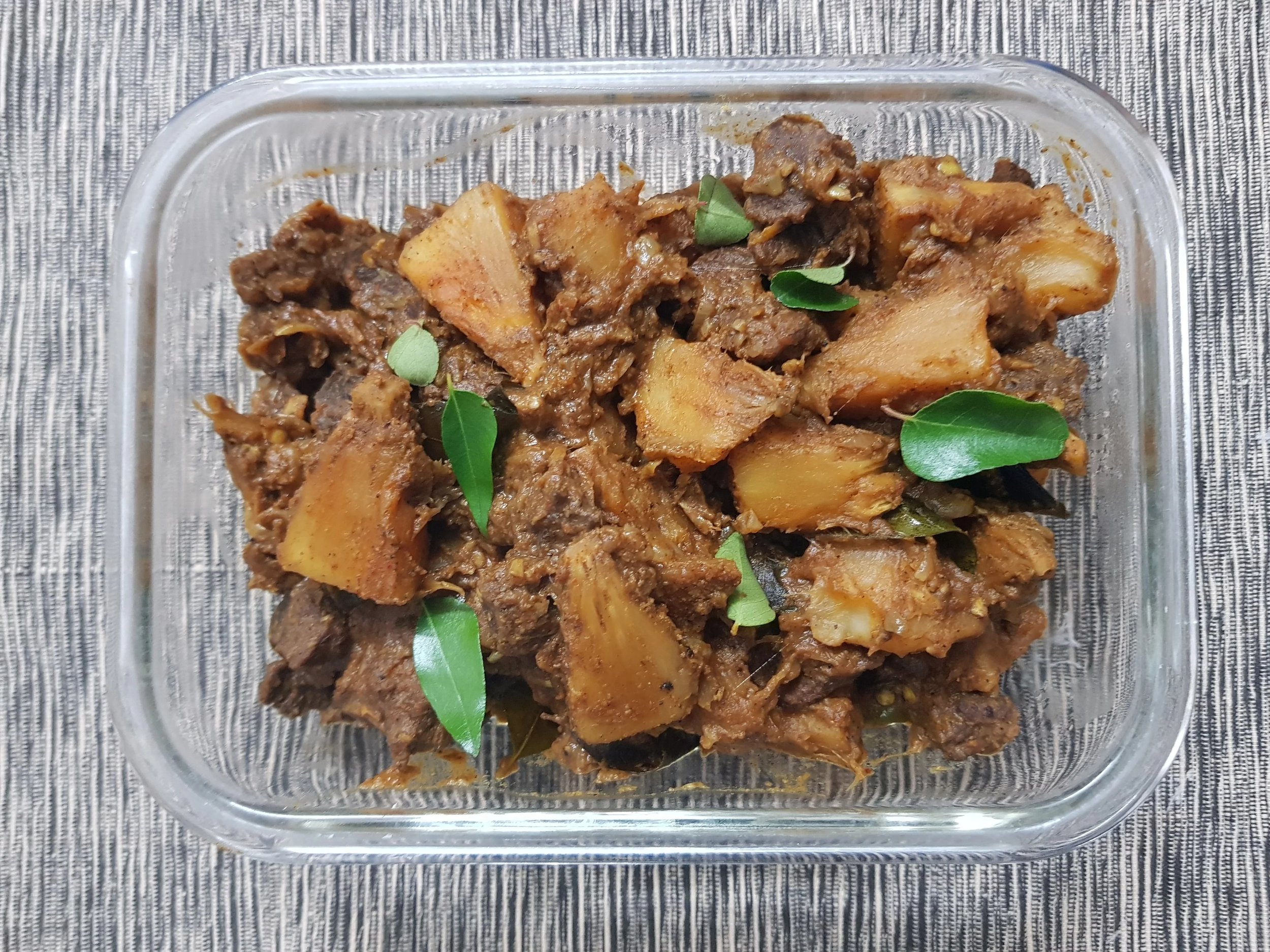
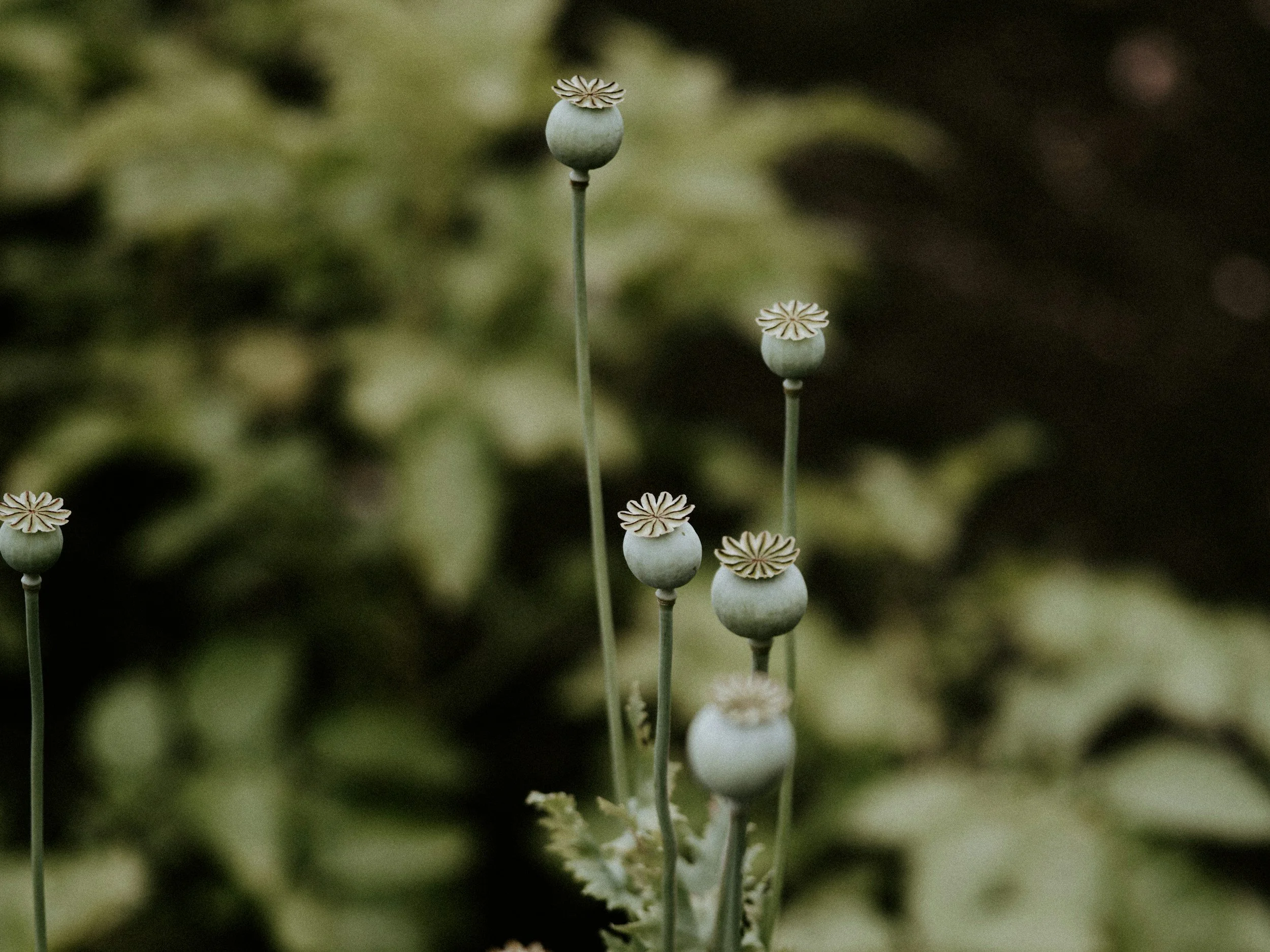
Neo-nomad cuisine of Central Asia | Terrence Manne